PHAM MINH CHINH - MEMBER OF THE POLITBURO, PRIME MINISTER
Comrade Tran Duc Luong - former member of the Politburo Standing Committee, former President of the Socialist Republic of Vietnam, former Vice Chairman of the Council of Ministers, former Deputy Prime Minister - a loyal and upright communist soldier, a close and intimate comrade, a respected and exemplary technocrat leader, an excellent scientist, who devoted his whole life to the country and the people, has just left us. His passing is a cause for infinite sorrow, but at the same time it leaves behind valuable legacies and is a shining example for present and future generations.
Comrade Tran Duc Luong was born on May 5, 1937 in Quang Ngai - a beautiful land, rich in cultural traditions and heroic history. After the Geneva Agreement divided the country into two regions, the South and the North, in 1955, when he was just 18 years old, Comrade Tran Duc Luong gathered in the North, studied elementary geological engineering, opening the process of many years of his attachment to the Mining - Geology industry, an important industry that is fundamental to the development of the country.
From then until 1986, he spent more than 30 years working in the Mining and Geology industry, quickly asserting his professional capacity and high sense of responsibility, and was entrusted with many important positions, including the Director General of the General Department of Geology (now the Department of Geology and Minerals) in the period of 1979-1987. He directly worked in all mountainous areas of our country, diligently surveyed and researched geology, making an important contribution to the construction of a national resource database serving the socio -economic development of many localities and the whole country; was a co-author of the research project "Geological map at a scale of 1/500,000 of Northern Vietnam" - a Soviet-Vietnamese cooperation project in the years 1960-1965; He was co-editor of the research project "Vietnam Geological Map at scale 1/500,000" published in 1988 and was awarded the Ho Chi Minh Prize in 2005.
The rich practical experience from the Mining and Geology industry has trained and honed comrade Tran Duc Luong's strategic vision, practicality, sharp thinking and analytical ability, and scientific and serious working spirit; creating an important foundation for his great contributions during the period of national renovation since 1986, in the positions of Government leader and head of State.
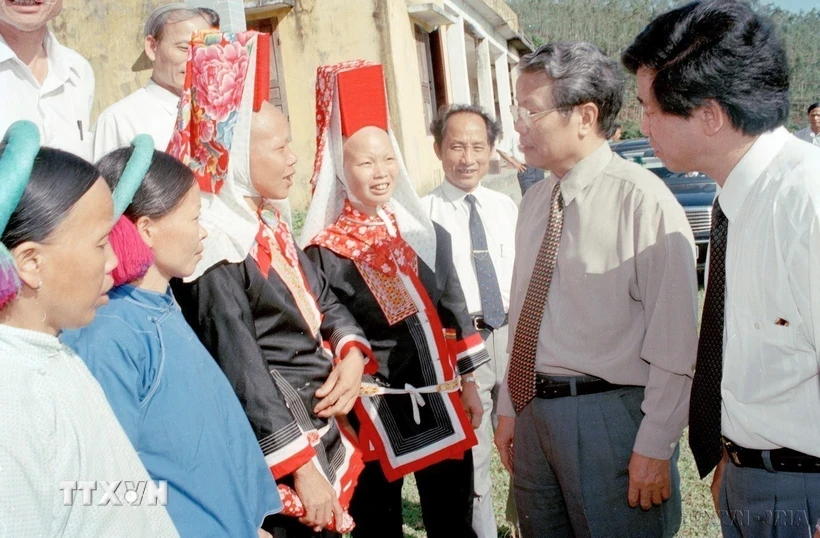 |
President Tran Duc Luong talks with ethnic people in Phong Du commune, mountainous district of Tien Yen (Quang Ninh), 1997. Photo: Trong Nghiep/VNA |
Since 1987, right after the Party advocated innovation and integration, he was assigned to be Vice Chairman of the Council of Ministers (now Deputy Prime Minister). At the 7th National Party Congress in 1991, he was elected by the Party as a member of the Politburo and since 1992, he was elected by the National Assembly to hold the position of Deputy Prime Minister. After the 8th National Party Congress (1996), he was elected President and held this position for two Party Congress terms until 2006. In his leadership positions in the Government and the State, Mr. Tran Duc Luong has made many important and comprehensive contributions to the cause of innovation, integration and development of the country with outstanding marks , especially in the fields of economy, society, national defense, security, foreign affairs, and consolidating the great national unity bloc.
On the economic front, as Deputy Prime Minister, Comrade Tran Duc Luong, together with the Government leadership, made many important decisions, creating a solid foundation for the country's socio-economic development. He devoted much effort to directing the research, exploration and exploitation of resources, especially oil and gas, making an important contribution to increasing revenue for the state budget; at the same time, he participated extensively in the process of building economic policies, promoting production, business, and encouraging foreign investment; together with the Politburo and the Government, he put forward correct guidelines and policies to overcome difficulties, maintain macroeconomic stability, promote administrative reform, and create a favorable environment for investment and business.
After the collapse of the Soviet Union and the socialist regime in Eastern European countries, he proposed to promote cooperation with the Russian Federation, especially in the fields of oil and gas and energy. Notably, he continued to purchase equipment for the Hoa Binh Hydropower Plant, re-signed and implemented the Vietnam-Russia Cooperation Agreement in the oil and gas sector according to international principles and practices, reformed the Vietnam-Soviet Petroleum Joint Venture (Vietsovpetro) and maintained the operation of the Vietnam-Russia Intergovernmental Cooperation Committee. He directed and participated in the drafting of many important draft laws and resolutions of the Government in the early period of renovation, including the Law on Foreign Investment in Vietnam in 1987, the Land Law in 1988, and decrees of the Government on capital construction management, state-owned enterprises, labor, wages, cooperatives, individual economic households, and families in the early period of renovation.
Assigned the task of Deputy Prime Minister in charge of economic and technical sectors, including industry, agriculture, trade - services, construction, transportation, post and telecommunications, he spent a lot of time and effort to focus on directing and achieving important results, contributing to gradually helping our country escape from the state of hyperinflation and restore production and business. The work of improving enterprise management and economic and technical sectors has had new developments with the promulgation of a number of important laws that he directed to build or participated in building ( such as the Law on Private Enterprises in 1990, the Law on Enterprise Bankruptcy in 1993, the Land Law in 1993, the Law on Domestic Investment Promotion in 1995, the Law on State-owned Enterprises in 1995, the Law on Petroleum in 1993, the Law on Cooperatives in 1996... ) .
He and the Government leaders directed the issuance of decrees and decisions on the establishment of economic groups and state-owned corporations, on housing policies in the renovation period [1] , decisions and decrees on autonomy, self-investment, financial autonomy, and investment cooperation with foreign countries to develop projects with advanced and modern science and technology in important fields such as: Oil and gas, energy, transportation, aviation, cement, textiles, agriculture - forestry - fishery... [2] ; thereby, opening a period of strong development in all economic and technical sectors. The relevant laws, decrees and legal documents during this period contributed to the formation and gradual improvement of the legal environment for enterprises and economic organizations to operate smoothly and effectively in a multi-sector economy, operating under a socialist-oriented market mechanism, under the management of the State.
He, together with the Party and State leaders, focused on leading, directing, guiding, and orienting the entire Party, people, and army to promote the cause of innovation and deep international integration, especially effectively overcoming the negative impacts of the 1997-1998 Asian financial crisis, helping the country quickly overcome difficulties and challenges, maintain macro-economic stability, and recover and develop the socio-economy. At the same time, he also paid special attention to building a socialist rule-of-law state, promoting administrative reform, strengthening the role of law in social life, and repeatedly emphasized: "We must build a state that is truly of the people, by the people, and for the people; all power must be for the benefit of the people." Under his leadership, reforms in institutions, organizational apparatus and administrative procedures have been gradually implemented, creating an important foundation for the country's industrialization, modernization and international integration.
Regarding national defense and security, in his capacity as President - Chairman of the National Defense and Security Council, Comrade Tran Duc Luong directed the development of many important strategies, programs and policies on national defense and security, contributing to firmly protecting independence, sovereignty, unity and territorial integrity. In particular, the East Sea and Islands Program is a program of special importance in the short and long term. Comrade Tran Duc Luong was assigned to be the Head of the Steering Committee, first of all directing the implementation of offshore fishing programs. Fishing ports and locks on all islands were built for the first time, including Co To, Bach Long Vi, Ly Son, Phu Quy, Con Dao, Phu Quoc and lighthouses in the Truong Sa archipelago. Comrade Tran Duc Luong directed the construction of the first DK platforms on the continental shelf and proposed the selection of works on the islands to build ports for ships to serve economic development and ensure national defense, security and sovereignty at sea. He directed the Government Border Committee to successfully negotiate the demarcation of the exclusive economic zone border at sea with Thailand and Malaysia, the demarcation of the continental shelf boundary with Indonesia, and the right to control air traffic in the southern sea area (FIR-HCM).
He was also assigned by the Politburo to be in charge of the inter-sectoral working group (diplomacy, defense, security, internal affairs, etc.) to draft the Project on protecting the Fatherland in the new situation, which was approved by the Politburo and the Central Executive Committee and issued Resolution 8 of the Central Committee (9th tenure) on "Strategy for protecting the Fatherland in the new situation" . This is a Resolution of special importance, of long-term strategic significance for the task of protecting the socialist Fatherland. He also contributed with the Politburo to direct the successful negotiation and signing of documents on demarcation of land borders and maritime borders (in the Gulf of Tonkin) with China.
Assigned by the Politburo to be in charge of the Central Steering Committee for Judicial Reform, he directed the Central Internal Affairs Commission and judicial agencies to strongly promote judicial reform nationwide, creating fundamental changes in the entire system in accordance with the spirit of the Politburo's Directive on judicial reform in the renovation period. He and the National Defense and Security Council discussed and directed the drafting of the Ordinance on the State of Emergency, which was unanimously approved by the Politburo and the National Assembly Standing Committee.
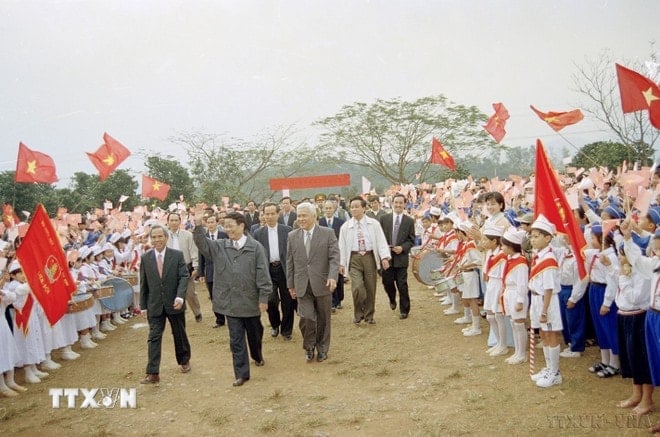 |
People of Khe Sanh town, Huong Hoa district, Quang Tri province welcome President Tran Duc Luong on his visit (January 8, 1999). Photo: Trong Nghiep/VNA |
On the foreign affairs front, promoting his extensive experience as the Permanent Representative of Vietnam to the Council for Mutual Economic Assistance (SEV) during the period 1987-1992, in his capacity as President, Comrade Tran Duc Luong closely directed and successfully implemented many visits and receptions of heads of state, contributing to enhancing Vietnam's position in the international arena, expanding friendly relations, cooperation and development with countries, regions and multilateral organizations. A typical example is the visit of President Tran Duc Luong to the Russian Federation in August 1998, which created a new breakthrough in the multifaceted cooperation between the two countries; in which, for the first time, Russian President Boris Yeltsin affirmed that Russia considered Vietnam a strategic partner in Southeast Asia. Comrade Tran Duc Luong also made many important contributions to the strong transformation of Vietnam - US relations after the two countries normalized relations in 1995. He officially met with US President Bill Clinton in New York in September 2000 on the occasion of attending the United Nations Millennium Summit and invited the US President to visit Vietnam; then, in November 2000, he welcomed President Bill Clinton on a historic visit to Vietnam, the first US President to visit Vietnam since the end of the war. He also closely directed the preparation and negotiation process with the US to sign the Vietnam - US Trade Agreement, which was approved by the US Senate on October 4, 2001.
Comrade Tran Duc Luong had many important instructions contributing to the creative application of Ho Chi Minh's diplomatic ideology in the new situation, shaping an independent and autonomous foreign policy, gradually promoting multilateralization and diversification of international relations, making Vietnam an active and responsible member of the international community, especially Vietnam's accession to APEC (1998) and preparation of important steps to join the WTO (2007), paving the way for a period of proactive and positive integration with a series of bilateral and multilateral trade and investment agreements that our country has signed since then.
Strengthening the great national unity bloc has always been a deep concern of comrade Tran Duc Luong. His touching images with ethnic minorities, women, children, associations, socio-political organizations, and overseas Vietnamese communities have touched the hearts of millions of Vietnamese people. He has had many meetings, speeches, and letters with warm feelings, sincere encouragement, and profound guidance to the Vietnam Red Cross Society, the Vietnam Youth Union, the Vietnam Women's Union, the Vietnam Buddhist Sangha; heroes, emulation fighters, and outstanding examples nationwide; teachers, teenagers, and children; and intimate meetings with overseas Vietnamese celebrating the New Year...
As a National Assembly delegate from the 7th to the 11th terms, he was closely associated with the legislative and supreme supervisory activities of the National Assembly, bringing the voice of the people to the National Assembly, and at the same time contributing to enhancing the role and position of the highest State power agency. Promoting policies for the poor and disadvantaged, especially in remote areas, for comrade Tran Duc Luong, the idea of "people as the root" , valuing human resources, "leaving no one behind" is not only a motto for action, but also a sincere and deep affection for the people; in which, under his direction and care, many programs for hunger eradication and poverty reduction, information coverage, electricity grid, schools, and medical stations in poor districts, mountainous areas, and border areas were given priority for implementation.
Not only was he a great leader with many important contributions to the country, comrade Tran Duc Luong was also a loyal party member, striving all his life for the communist ideal, for the development of the country, for the happiness of the people. Since 1959, he has been a member of the Party and has trained and contributed tirelessly over the past 66 years. In all positions, he has always demonstrated a pioneering, exemplary, humble and close-to-the-people spirit; maintained integrity, simplicity, impartiality; and cared for preserving the solidarity and unity of the Party. He always put the interests of the country and the people above all else, always concerned and seeking effective mechanisms, policies and solutions to serve socio-economic development, improve the material and spiritual life of the people, for the bright future of the country. His modesty and sincerity created the image of a prestigious leader, loved by the people and respected by international friends.
In particular, Comrade Tran Duc Luong always emphasized the importance of solidarity, joint efforts, and unanimity within the Party and among the entire people. He always upheld principles, correctly implemented the policy of solving problems objectively, scientifically, based on reality and national interests. He was an exemplary leader with a serious working spirit, carefulness in every decision, along with a devoted heart, wholeheartedly devoted to the common cause, leaving behind a beautiful example of revolutionary morality, spreading many important values, both in policy, in spirit and in the memories of compatriots, of those who had accompanied and worked with him in different positions.
After being allowed to retire by the Party and the State according to the regime, comrade Tran Duc Luong was always concerned, worried, enthusiastic and continued to have important contributions in the fields of economy, culture, society, national defense, security, and foreign affairs. Every time the Party and State leaders and I visited, he discussed deeply about important, strategic issues and advised us to have a long-term vision, think deeply, do big things, all for the development of the country, for the happiness and prosperity of the people, especially to pay more attention to the work of training and nurturing the young generation - the future owners of the country.
On the occasion of the 95th anniversary of the Party's founding (February 3, 1930 / February 3, 2025), he was awarded the 65-year Party membership badge. He was also awarded the Second Class Resistance War Medal by the Party and the State (1995) and the Gold Star Medal (December 2007) - the highest medal of the Party and the State awarded to those who have made outstanding contributions to the country. At the same time, he also received many medals and noble titles awarded by international friends [3] . These valuable awards are the recognition and appreciation of the Party, the State and international friends for comrade Tran Duc Luong for his great and outstanding contributions to the glorious revolutionary cause of the Party, the nation and the cooperative and friendly relations between Vietnam and other countries. Comrade Tran Duc Luong's practical experiences and contributions are valuable assets for present and future generations to learn, cherish and continue to promote in the cause of national construction, development and defense.
The legacies, important contributions and profound lessons from the life and career of comrade Tran Duc Luong are still valuable to us today, especially in the process of implementing the revolution of streamlining the organizational apparatus and the Politburo's " Four Pillars " policies to bring the country firmly into the era of national development, prosperity, civilization and prosperity, as General Secretary To Lam affirmed.
The life and tireless dedication of comrade Tran Duc Luong is a source of inspiration for cadres, party members, our people, for the young generation today and tomorrow to continue writing glorious pages of history for the nation. He will always be a shining example for compatriots, comrades, cadres and soldiers nationwide to respect, learn from and follow, promoting the spirit of solidarity, joining hands and unanimity to successfully build a socialist Vietnam with rich people, strong country, democracy, fairness, civilization, prosperity, happiness, standing shoulder to shoulder with the world powers, as beloved President Ho Chi Minh always wished.
[1] Government Decree No. 60-CP dated July 5, 1994 on housing ownership and land use rights in urban areas and Government Decree No. 61-CP dated July 5, 1994 on housing trading and business.
[2] Projects of particular importance during this period include: Construction of Yaly and Tri An hydropower plants; construction of the 500 kV North-South high-voltage power transmission line; Bach Ho oil and gas exploitation project; project to bring gas from Bach Ho mine to the mainland and build Phu My gas - electricity - fertilizer industrial cluster; irrigation works to exploit the Long Xuyen quadrangle; completion of renovation of the country's key national highways (National Highway 1, National Highway 5, National Highway 10, National Highway 51, National Highway 18...).
[3] Including the title of Honorary Professor of the Russian Academy of Sciences (1998); José Marti Medal of the Cuban Government (2000); Agricola Medal, United Nations Food and Agriculture Program (2002); Noble Merit Medal of the Congo Government (2002); Legion of Honor Medal of the French Government (2002)...
Source: https://baodaknong.vn/dong-chi-tran-duc-luong-nha-lanh-dao-co-nhieu-dong-gop-quan-trong-cho-su-nghiep-doi-moi-phat-trien-dat-nuoc-va-bao-ve-to-quoc-253475.html



![[Photo] Prime Minister hands over decisions on receiving, transferring and appointing leaders of ministries and agencies](https://vphoto.vietnam.vn/thumb/1200x675/vietnam/resource/IMAGE/2025/9/4/b2445ecfd89c48bdb3fafb13cde72cbb)

![[Photo] Prime Minister Pham Minh Chinh chairs the thematic meeting on law making in August 2025](https://vphoto.vietnam.vn/thumb/1200x675/vietnam/resource/IMAGE/2025/9/4/ba42763cd48e4d7cba3481640b5ae367)
![[Photo] Politburo works with the Standing Committee of the Party Committee of the Fatherland Front and Central organizations](https://vphoto.vietnam.vn/thumb/1200x675/vietnam/resource/IMAGE/2025/9/4/6f23e5c0f576484bb02b3aad08f9d26a)
![[Photo] Politburo works with the Standing Committee of Lai Chau Provincial Party Committee](https://vphoto.vietnam.vn/thumb/1200x675/vietnam/resource/IMAGE/2025/9/4/f69437b9ec3b4b0089a8d789d9749b44)
![[Photo] Politburo works with the Standing Committee of Can Tho City Party Committee](https://vphoto.vietnam.vn/thumb/1200x675/vietnam/resource/IMAGE/2025/9/4/10461762301c435d8649f6f3bb07327e)






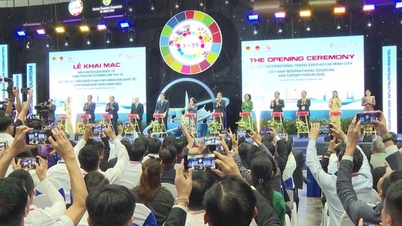


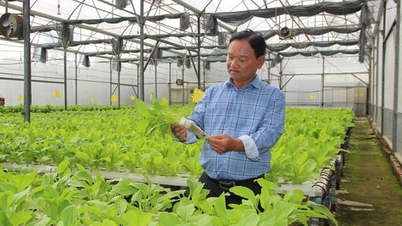


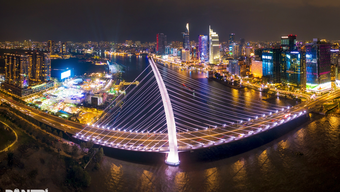
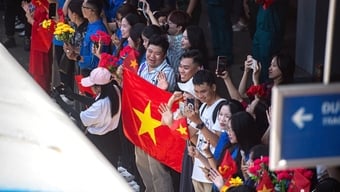
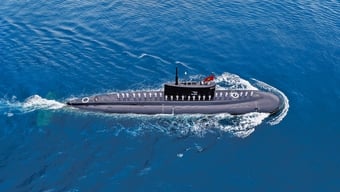
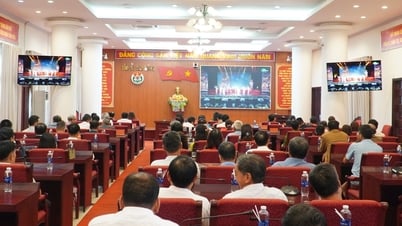
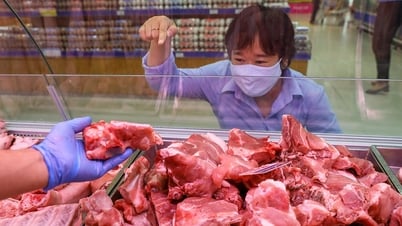
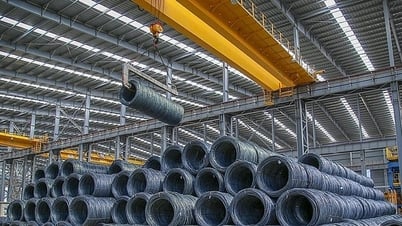
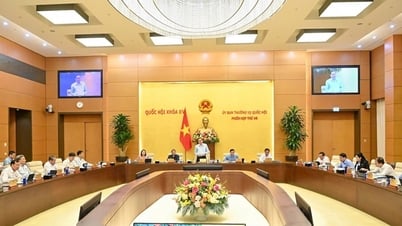
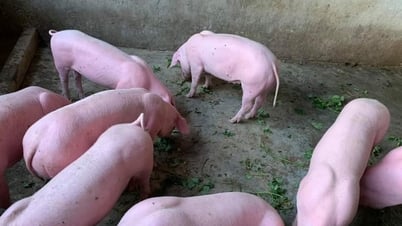
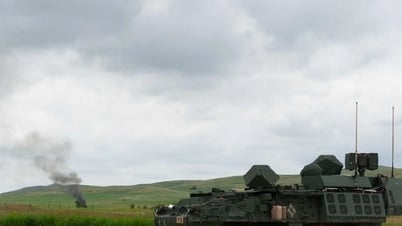


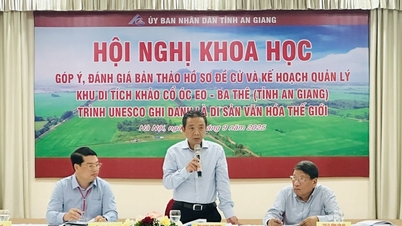
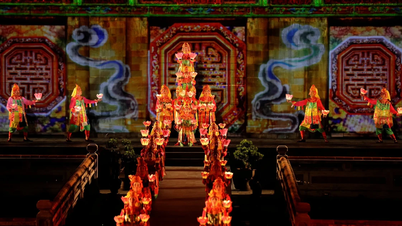



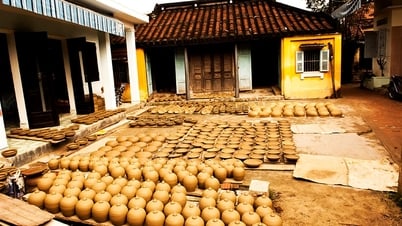
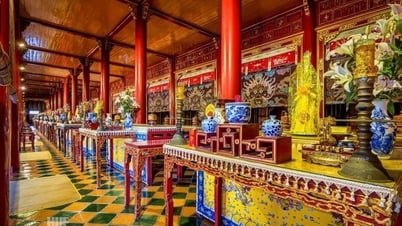



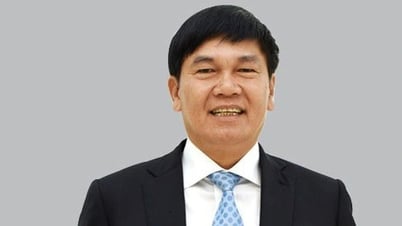
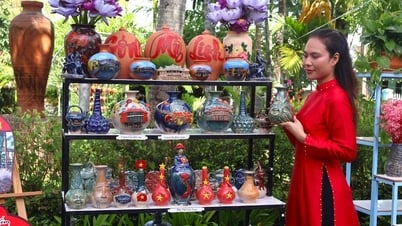




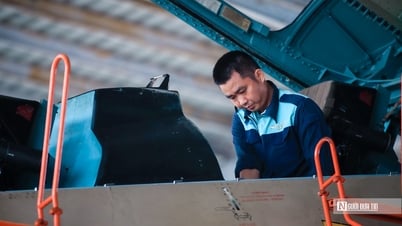






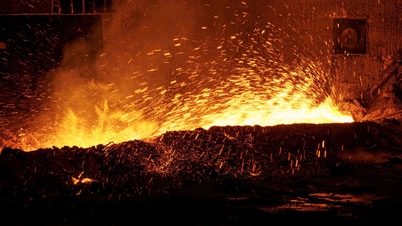




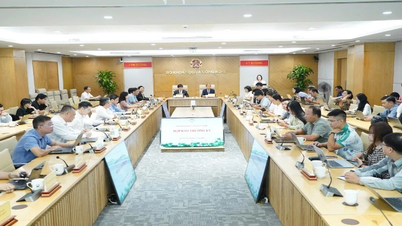

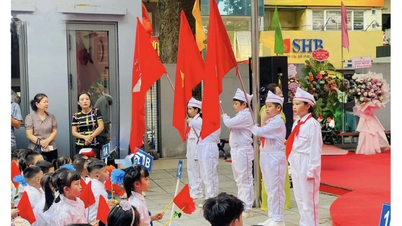

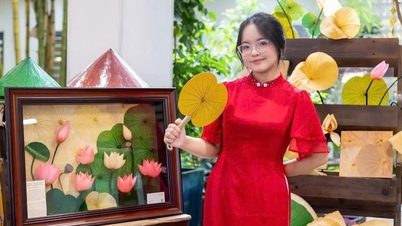



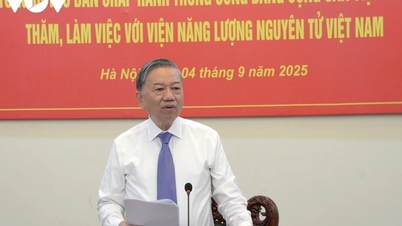
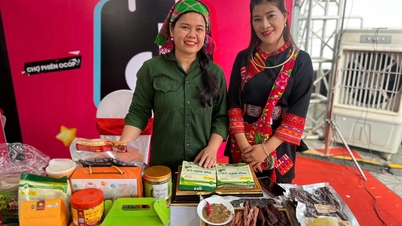

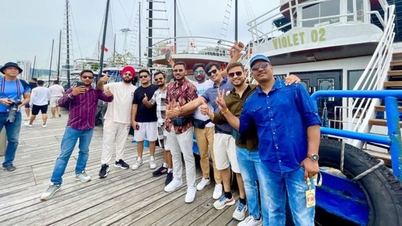

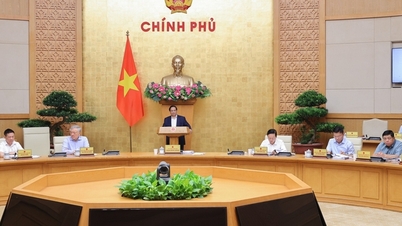
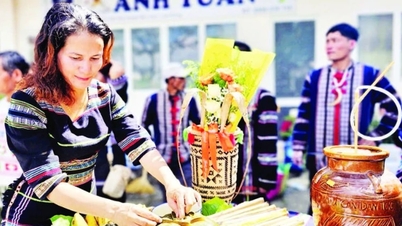


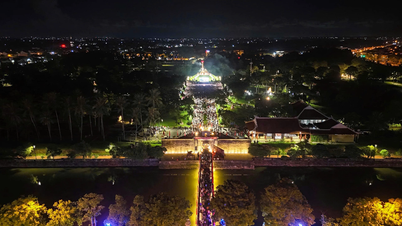

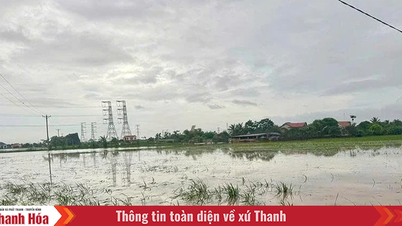

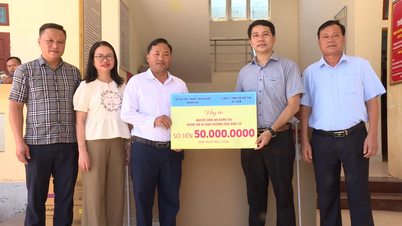
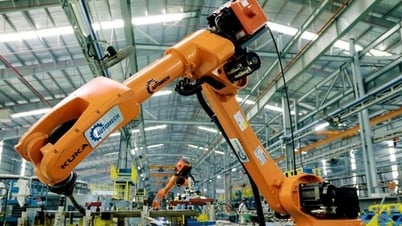

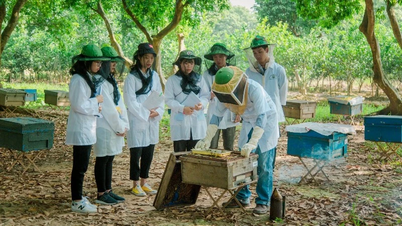
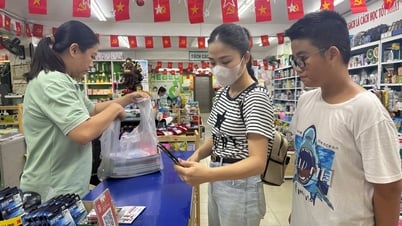
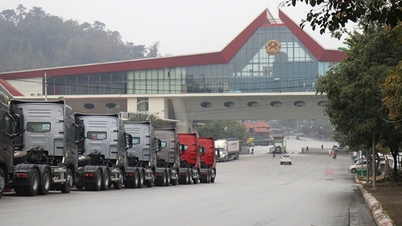
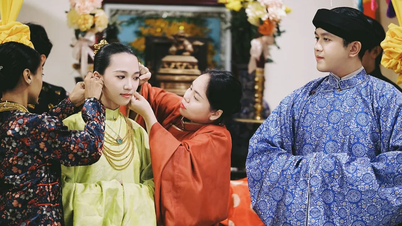






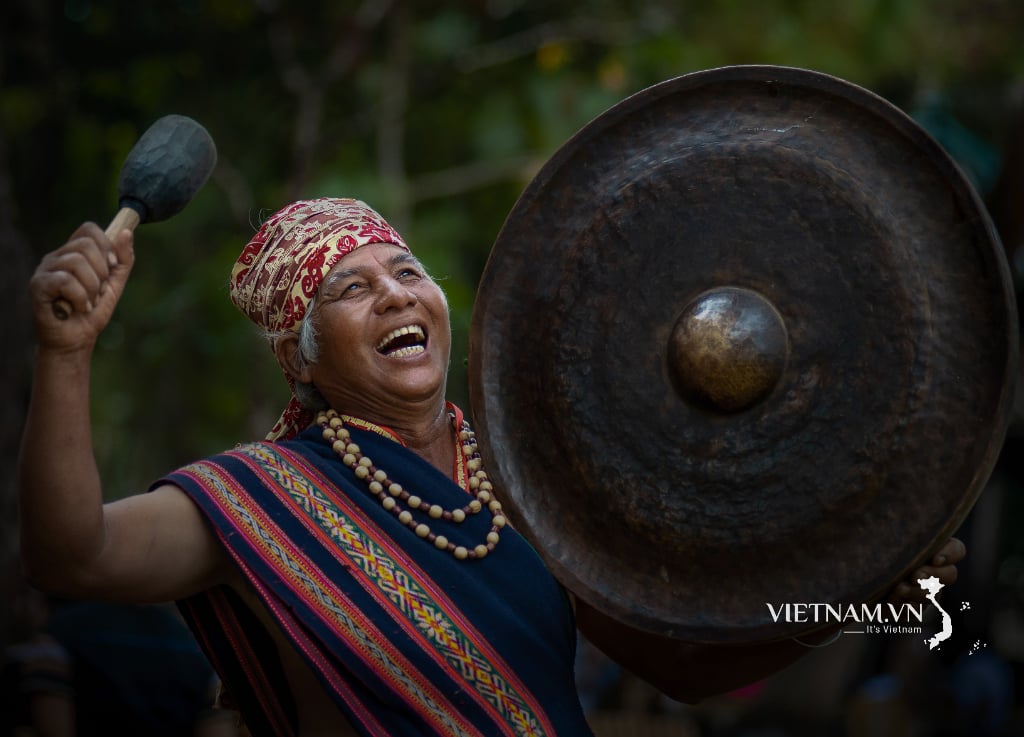
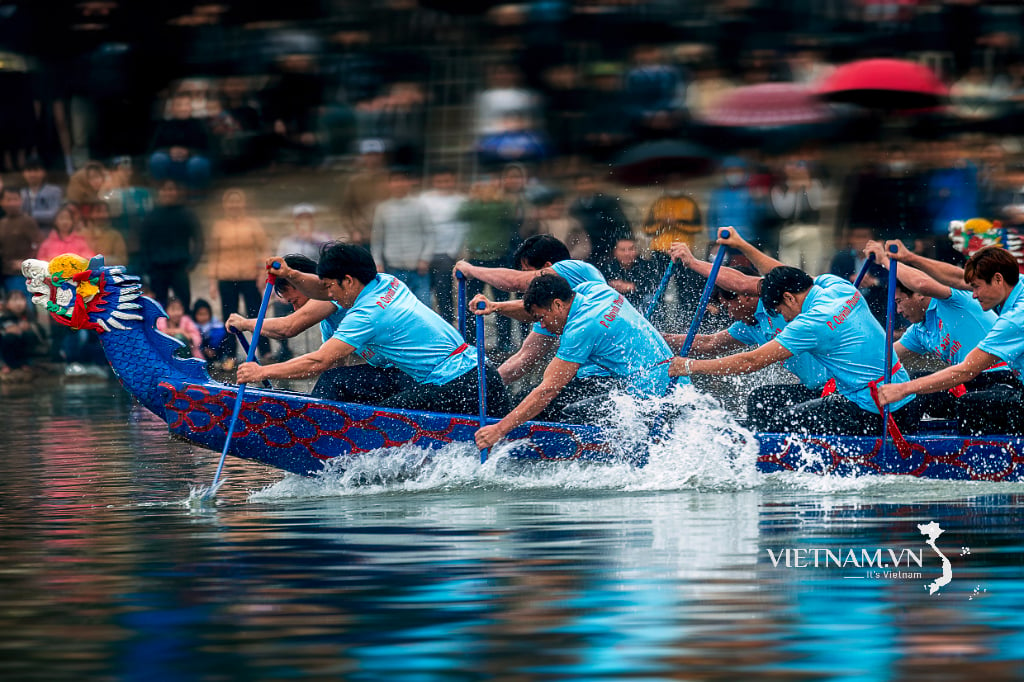
Comment (0)